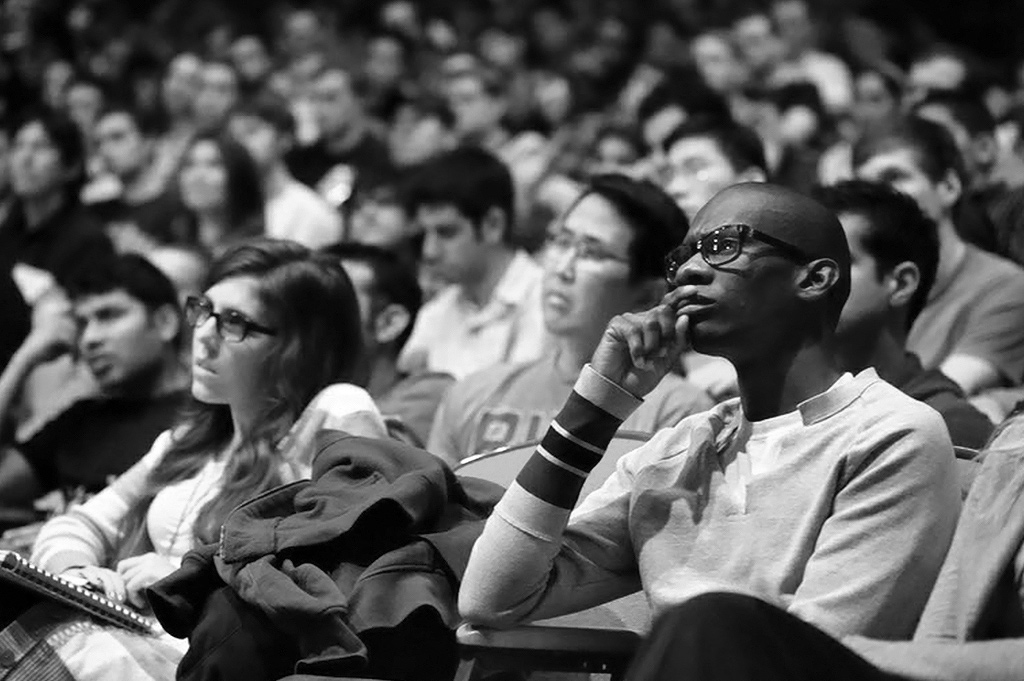This article is brought to you by the ERLC Leadership Summit Conference: The Gospel & Racial Reconciliation
Even with the recent surge of attention given to issues of race and ethnicity, any attempt to enter a conversation on these issues comes with a degree of timidity: Can I say this? Am I allowed to use that word? How will he respond if I ask about…?
These kinds of questions can also come up around observations of Black History Month, as people consider ways to honor African Americans without resorting to stereotypes, clichés, or tokenism.
Our reluctance to address race and to resign to “safe” silence often comes from a desire to respect others, but also from our own fear of being called insensitive, hurtful, or worse, a racist.
That term comes with so much weight and penalty that people do not relate to it. There are few self-identified racists, though many in our country and our churches indeed struggle with racism. Our distance from this term hinders us from fully engaging with issues of race.
I’ve written previously to challenge fellow Christians to evaluate their hearts to see whether pride and self-exaltation has fueled the sin of racism within them. I know racism is alive and well because I have met people who tell me they struggle with it. Over the past year, I’ve engaged with brothers and sisters who are willing to face their sin, repent, and ask God for strength to change.
Many of these people, I believe, would continue to be complacent in their sin if some churches and organizations hadn’t started to become more vocal over issues of race. When we are willing to have difficult, and sometimes uncomfortable, conversations—God works through them.
Researchers found that most evangelicals believe “one of the most effective ways to improve race relations is to stop talking about race.” This sentiment reveals how many of us would rather ignore race as a societal force as well as our own racial bias.
Racial bias comes as a matter of instinct. What’s your reaction when you see someone who appears to be of Middle Eastern descent boarding your plane? If you are walking in an urban area and a group of large black men approach, what do you think? When you see a white male with a beard, wearing skinny jeans in a coffee shop, how do you sum him up? Can all black people dance? Are all Asians smart? Are all Africans living in huts without electricity? Does every white person in America live in the suburbs and drive mini-vans?
I’ve experienced this kind of instinctual racial bias. Certain individuals meet me and feel the need to speak a certain vernacular (“Yo, what up?”) or move in a way that was clearly something they picked up on from watching television. I wasn’t offended; I’m confident that with enough interactions, that bias will be unproven in my case. In another instance, when I was accepted into law school, someone declared that I must have benefited from affirmative action. Why wasn’t hard work the first assumption?
We are easily influenced by culture – what we’ve read, seen or heard about but not experienced – and the attitudes and belief systems of generations past. To see reconciliation and progress in our nation, communities, and churches, we must recognize that racial bias is indeed a possibility for each and every one of us. We then want to fight our assumptions of others, learn, and ask good questions.
It is up to us to recognize our problematic assumptions and address our ignorance. Though the lack of understanding beneath much racial bias is not necessarily sinful, it can lead to an unbiblical mindset that favors your race over others’. Once bias causes unwarranted judgment, anxiety, or fear, it plagues us as sin.
The oft-used phrase “there’s nothing new under the sun” relates to racial discrimination, too. Prejudice led a priest and a Levite to pass by a man on the side of the road after he suffered robbery and being beaten (Luke 10: 31-32). And it was a love for neighbor that led the Samaritan to help the man regardless of the racial bias (Luke 11: 25-37; John 4:9).
Additionally, we know that Jesus never held these biases; he was constantly bucking the system and cultural and societal definitions of race and ethnicity. He wasn’t sinning—our Savior never sinned (2 Cor. 5:21) —he walked this earth in complete purity and righteousness. He related to, cared for and served those who were not like him.
Scriptures give us a better way to view one another: We are all created in the image of God (Gen. 1:27). We are created uniquely different, to the glory of God, but we are one humanity (Gen. 1: 26-28; Acts 17:26). We should embrace our differences, but not allow our assumptions and stereotypes to inform our actions. We all must take steps to learn and educate ourselves. We must also repent where repentance is necessary and be honest about how we view our fellow man. This short post won’t solve the problem, but I do pray it builds awareness, which is one step towards understanding, healing, and reconciliation. We are united by the gospel that makes us able to love and serve those who we don’t know.
Special thanks to CT’s Her.meneutics and Trillia, the author, for allowing us to re-publish this with permission. You can find the original article here.


